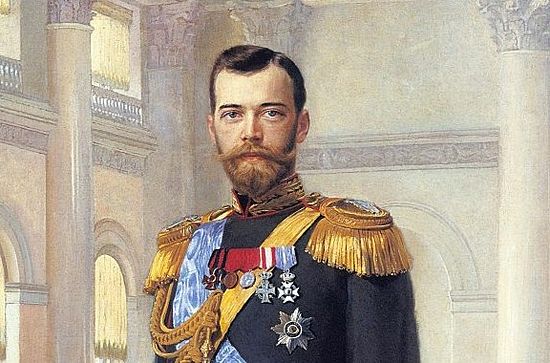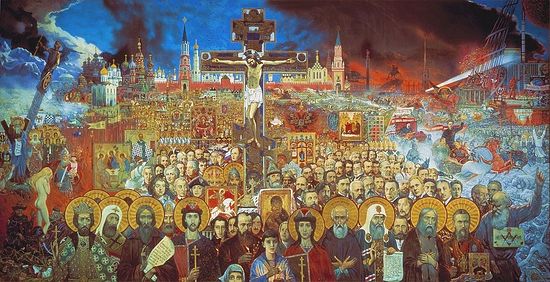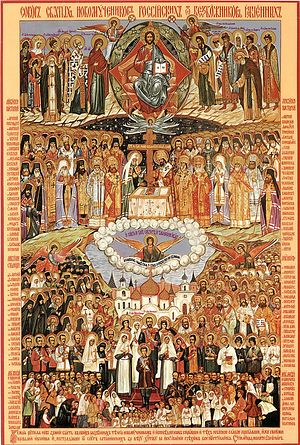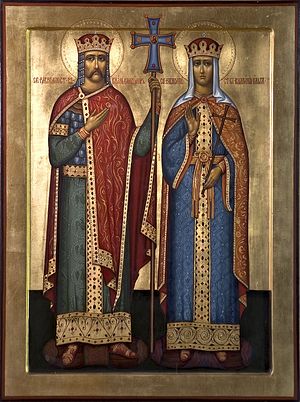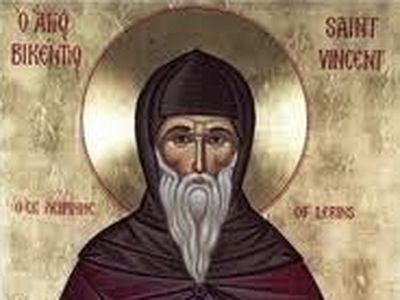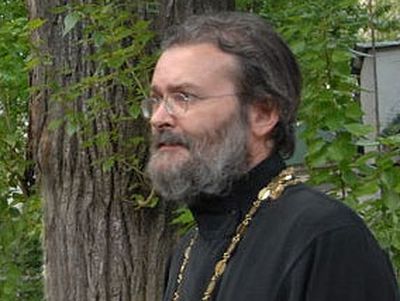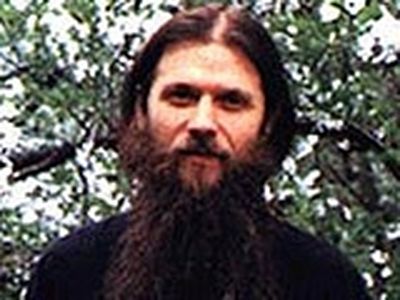The Emperor and the Empress thought that they were dying for their homeland. But in fact they died for all mankind.
Pierre Gilliard, Swiss tutor to the Tsar’s children.
Foreword
Ten years ago, in 2005, debate raged in the Russian Orthodox Church Outside Russia (ROCOR) about our relations with the Church inside Russia. Was it at last free and so could we enter into canonical communion and work together, building the future? Such was the debate that a Pan-Diaspora Church Council was called in San Francisco in 2006 in order to answer the questions posed. At that time we had to counter some very false arguments which were advanced in favour of sectarian self-isolation, arguments that were shaped by the impurity of politics and psychology, and not by the purity of theology. Below are examples.
Yesterday
The human weakness of Metropolitan (later Patriarch) Sergius (+ 1945) and his followers, as revealed in compromises with the atheist persecutor Stalin, known as ‘sergianism’, was erected by some into a ‘theological’ heresy. In fact, it was just another form of erastianism, of placing the State above the Church, of which there had already been so many examples in other forms in the Old Testament and in 1900 years of Church history. There was nothing theological in this, for it was only human weakness on the part of one who had found himself under huge pressure from a militant atheist State. No-one is to judge him for his weakness, there is no place for phariseeism here, for God is the Judge of all.
Though there was nothing of a dogmatic or theological nature in such compromises, certain individuals, partly under the influence of North American political puritanism, even concluded that the present-day sacraments of the Church inside Russia had somehow mysteriously ‘lost grace’ on account of this compromise of three generations before. As a ROCOR priest, I first came across this astonishing piece of politics masquerading as theology in 1992 from someone who was under the influence of this North American error. In fact, of course, sergianism is not a heresy, whereas puritanism, with its inherent impurity of Novatianism, Donatism and Eustathianism, as seen in the light of the canons of the Council of Gangra of 340, most certainly is.
The political and diplomatic support which a few in the Church inside Russia sought from Roman Catholics and Protestants, and called ecumenism, was also condemned. However, it was a very curious idea that the opinions or actions of a handful of individuals could be held up as a sign that the whole of the Church inside Russia, 160,000,000 people, was therefore somehow tainted by the heresy of ecumenism! In reality, most of the faithful inside Russia had never heard of ecumenism and those who had were utterly opposed to it. This was all the stranger, in that by 2005 ecumenism had in any case come to mean something very different from in its political heyday between the 60s and 80s. Instead of concerning itself with politically-enforced syncretistic compromise, in fact heresy, it had turned to having good-neighbourly relations with heterodox, something that ROCOR, with the many mixed marriages among parishioners and regular need to use heterodox premises for services, had always cultivated.
The strangest argument heard at that time was that we could not associate ourselves with the Church inside Russia in any way because of the compromises of a few individuals in it. This was an appalling error, for it would have meant that we could not associate ourselves with the Church of the New Martyrs and Confessors. True, we, in freedom, had canonized the New Martyrs and Confessors first, in 1981, 19 years before the Church inside Russia had been able to do so by freeing itself. However, many, including myself, had wondered why we in the Church Outside Russia (ROCOR), living in freedom, had so scandalously not canonized the New Martyrs and Confessors long before, from the 1920s on. We felt shame for ourselves.
The sad reason for the delay had been because elements in ROCOR were themselves contaminated with politics. Indeed, I well remember how in 1981 certain parishioners at the ROCOR Cathedral in London, as also elsewhere, had actually been opposed to the canonization. And in any case, the ROCOR canonization had only ever been a first step, a beginning. As I wrote at the time: What has begun in New York must come to completion in Moscow. Moreover, for lack of trustworthy information we had canonized only some 8,000; the Church inside Russia, with greater access to archives, has canonized well over 30,000 and that number is increasing.
Others said that we in ROCOR could have nothing to do with a Church whose bishops belonged to the KGB. I would have agreed with this – if any had belonged to the KGB, such as, we suspect, the defrocked schismatic Filaret Denisenko, now the darling of the CIA. In fact, they did not. The senior bishops inside Russia merely had KGB code names – in the same way as Western secular leaders, whom we prayed for in our services as civil leaders, had KGB code-names. The Church inside Russia could just as well have said: ‘We will have nothing to do with ROCOR because you pray for individuals who have KGB code-names’. It would have been just as false an argument.
Some in ROCOR admitted that there were members of our Church, in good standing, who worked or had worked for the CIA and other Western spy services. They countered this by saying that there were members of the KGB in churches inside Russia. This was totally false: the only KGB members who attended churches there were those who went there to spy, to note down names of priests or young people and create problems for them.
Sectarian elements in ROCOR objected that if we entered into canonical communion with the Church inside Russia, we would then be in communion with the rest of the Orthodox Church! I first heard this incredible argument, I think, in about 1999, when a ROCOR priest from London concelebrated with a priest of the Patriarchate of Constantinople. This had raised an objection from a sectarian priest trained in North America. In the Western European Diocese of ROCOR, where I had been ordained and celebrated until 1997, such concelebrations were perfectly normal and happened regularly. As a ROCOR priest, I was amazed at this sectarian spirit, which I had hardly met before. The logic of this argument would be that we in ROCOR were no longer in communion with Mt Athos, which is in the jurisdiction of the Patriarchate of Constantinople. Absolutely unthinkable! (Naturally, such sectarians later left ROCOR).
On a much more serious and practical level, there were those who pointed out that among representatives of the Church inside Russia in the Diaspora there were still corrupt and renovationist clergy at even the highest level, even though several had by then died out. This was a problem. Although these renovationists called us slanderers for telling the Truth and so shaming their false idols (as renovationists elsewhere still do), the problem was largely overcome in 2006, when most such clergy in England and France left the jurisdiction of the Church inside Russia in a schism which they created; since then, two or three other such individuals have simply been removed, so they can no longer cause scandal and can at last learn the basics of the Faith.
Finally, there were those who said that we could not work together with the Church inside Russia because the situation in Russia was not as it had been before the Revolution. Soviet practices had infiltrated Russian society, alcoholism, abortion, corruption and divorce were rife, the mummy of the Russophobic murderer Lenin still lay on Red Square, and the squares and streets of Russia were littered with his statues or named after his henchmen. They demandingly demanded in fact that the post-Soviet Russian State (in charge of such matters) behave as though it were part of the Russian Church! In the face of this argument we pointed out that pre-Revolutionary Russia had not been ideal either (otherwise there would never have been a Revolution), we asked for compassion for a people deprived for three generations of a free Church, asked for patience and said that with time the Church will influence the State, since repentance, which we too are in need of, changes people.
Victory
The above arguments were rejected, with repentance for ever having entertained them, by well over 95% of ROCOR, dismissed as the arguments of schismatic impurity, of a tiny, sectarian, inward-looking and politicized minority, which had been trying to take over ROCOR, holding us back and impeding us from fulfilling our universal calling together with the rest of the Russian Orthodox Church, the great majority. As we know, in 2007 the vast majority of the hierarchy, clergy and people of our little ROCOR were happy to enter at last into canonical communion with the vast majority of the rest of the Church, of which we had always spiritually been a part. The separation, caused purely by political events exterior to the Church, was over. We were sure that the Church inside Russia had freed itself, as had already been made evident by the Jubilee Council of 2000. At long last, our inward unity could become outwardly apparent and, impediments removed, we could progress together towards our common destiny and ever more urgent mission.
Tomorrow
A generation after the fall of State atheism in the Russian Federation, we see in Russia today most interesting developments, promising for the future. After the awful period of ‘law of the jungle’ capitalism in the 1990s, with its rule of seven bankers, ‘Wild East’ bandit privatizations and the appearance of pro-Western criminal oligarchs and liberals, Russia has largely seen through that alternative to Communism that was offered it by the consumerist Western world, which we too, living in the Western world itself, had already seen through.
Thanks largely to the chaos and misery that the Western Powers have been causing in Iraq, in Afghanistan, in Libya, Syria and above all in the Ukraine, Russian society has seen through Eurosodom and Gomorrhica. If the CIA-installed Poroshenko junta, set up in Kiev, the Mother of Russian cities, wants the suicide of ‘European values’, it can have them. We will remain faithful to the values of St Vladimir and St Olga of Holy Kiev. Believing in Christ, Who trampled down death by death, we choose life. Believing in satan who tramples down life by death, they choose death. That is the difference between us.
Providentially, through the Western attacks on Holy Rus, Russian society has for the most part now come to understand that the West is not the solution. Russia must follow its own, historic, God-given way, the way that our saints and other lucid elements in ROCOR have always preached. As for Russia, it must heal itself and restore Holy Rus. Outside Russia, we can only pray and encourage, learning as we go, for our main task is to spread Orthodoxy outside the Russian Lands in faithfulness to Holy Rus. We are only humble disciples who follow the precepts of Holy Rus.
Interestingly, voices have been saying that Russian society today resembles 1917 Russia. However, unlike in 1917 the direction of today’s Russia is not 1918, but 1916. In other words, although the situation is delicate, Russia is not heading towards catastrophe as it was in 1917, but is heading back from it. Here is the difference. If, God willing, we continue on this God-given path, the Church of Russia will lead us to our destiny. What is this?
On account of the utter failure of imposed Western ideas there, we can say that Russia has seen the future and knows from bitter experience that it does not work. Today it is struggling its way back up from the pit, at the same time as the Western world, led by the United States, is hurtling headlong into it. Today, some of the more aware Western politicians and thinkers are going to Russia or following events in Russia in order to learn. Gerhard Schroeder, Nicolas Sarkozy, Phillippe de Villiers, Pat Buchanan, Ron Paul, Paul Craig Roberts, Franklin Graham and others all follow events in Russia closely or visit.
Russia’s mystical and historic role now is to act as an intermediary between East and West, between China and Western Europe. For the spiritual destiny of China is to enter the authentic Orthodox Christian world, becoming the Eastern provinces of Holy Rus, just as the spiritual destiny of Western Europe, with its roots in Orthodox Christianity, is to return to it, with the help of its ancient saints, by becoming the Western provinces of Holy Rus. True, the towering national pride of Europeans largely prevents this, for where there is no humility, there is no salvation. Indeed, Russia’s task is now not to save Europe from the USA, as some have put it, but to save Europe from itself. Just as Russia, and not the West, was to blame for choosing the Western ideology that created the Russian Revolution in February 1917, we do not blame others for the present misfortune that Europeans have chosen for themselves.
The key to universal salvation in these last times is atonement, in the restoration of Holy Rus and in Holy Rus becoming universal. Following the Holy Trinity, we are called on not only to be Guardians and Gatherers of Holy Rus, following the Father and the Son, but also Spreaders of Holy Rus, following the Holy Spirit. Those, in East and West, who want to work with the Russian Orthodox Church and so, by following the Tradition, build up new Local Churches are welcome to do so. If some do not wish to do so and set themselves against the prophetic and mystical Church Tradition in tired, old, secularist and humanist neo-renovationism, then God be with them. We shall do God’s Will without them. We force no-one to follow the Church; the Church sails ahead without those who reject Her.
In 1917 the last Christian Emperor, the Tsar, did not abdicate. In 1917 Russia and the whole world abdicated from him, from the Christian Emperor and Christian Empire, and so from Christ. Since then there has been no peace on earth so that we have all had to atone, each receiving our penance in order to learn humility. Inside Russia the people faced the penances of persecution and Nazi invasion, outside Russia those in the emigration faced the penances of exile and isolation. As for Europe, like today’s USA also, it has faced the penance of war and humiliating loss of power and greatness. As for the rest of the world, it has faced constant strife and war, ever since he who restrains (2 Thess. 2, 7) was in 1917 removed. All the suffering of the world since 1917 has been the opportunity of all to learn humility.
Our destiny, mystical and prophetical, is to preach Holy Rus, the message of the last Christian Emperor, to the whole world for repentance before the end. The time is coming when the world will at last be ready to hear of Holy Rus, of the universality of the Incarnate Christ, authentic Christianity, and not the two diluted isms shaped by Western heathenism, pagan Romanism and northern barbarianism, that is, Roman Catholicism and Protestantism.
Afterword
My great-grandfather was born in the same year as Nicholas II, the last Christian Emperor who was martyred in Ekaterinburg in 1918. One hundred years after the Emperor’s birth and fifty years after his martyrdom, I, born on the anniversary of the day when the remains of the Imperial family were finally destroyed, received the message from the east that I was to learn and then go and speak of Holy Rus, Christ Incarnate, to those whom I met. This is not only my personal destiny, but also that of many others, as described so well in the poem ‘The Apostles’, written in exile in 1928 by the bard of the Tsar, Sergey Bekhteev:
Amid the darkness of the slavish world
We bear the spirit’s torch in
victory
And we call loud to those chosen by God
To enter the hall where the Orthodox feast.
We walk along a road of thorns,
We soar above worldly vanity,
We are the apostles of Christ’s
Faith,
We are the heralds of holy truth.
We call the races and the peoples,
Made scarlet with their brothers’
blood,
To the kingdom of true, eternal
freedom,
To the kingdom of goodness, light and love.
The hopes and prayers for the future turn to Ekaterinburg, to restoration and coronation.
